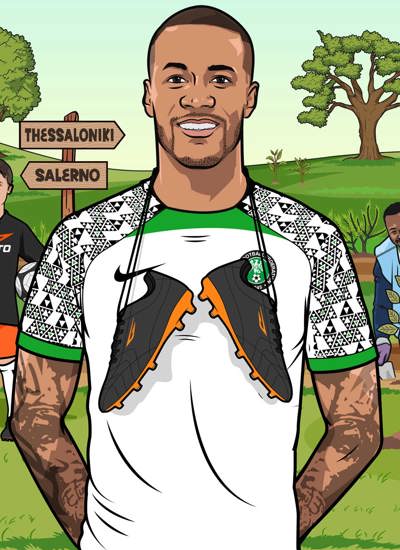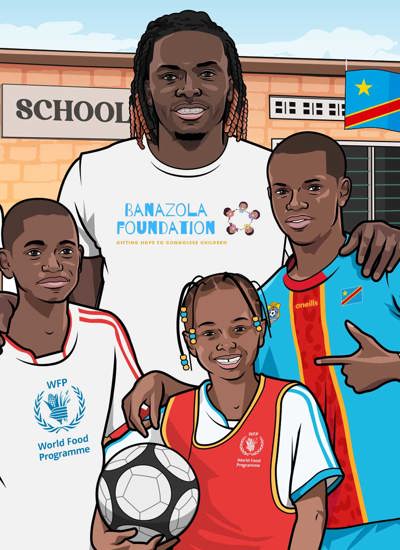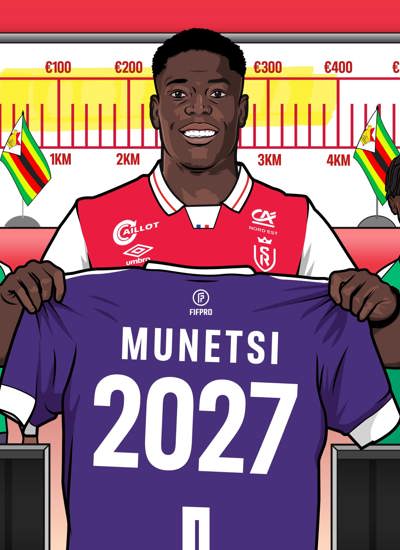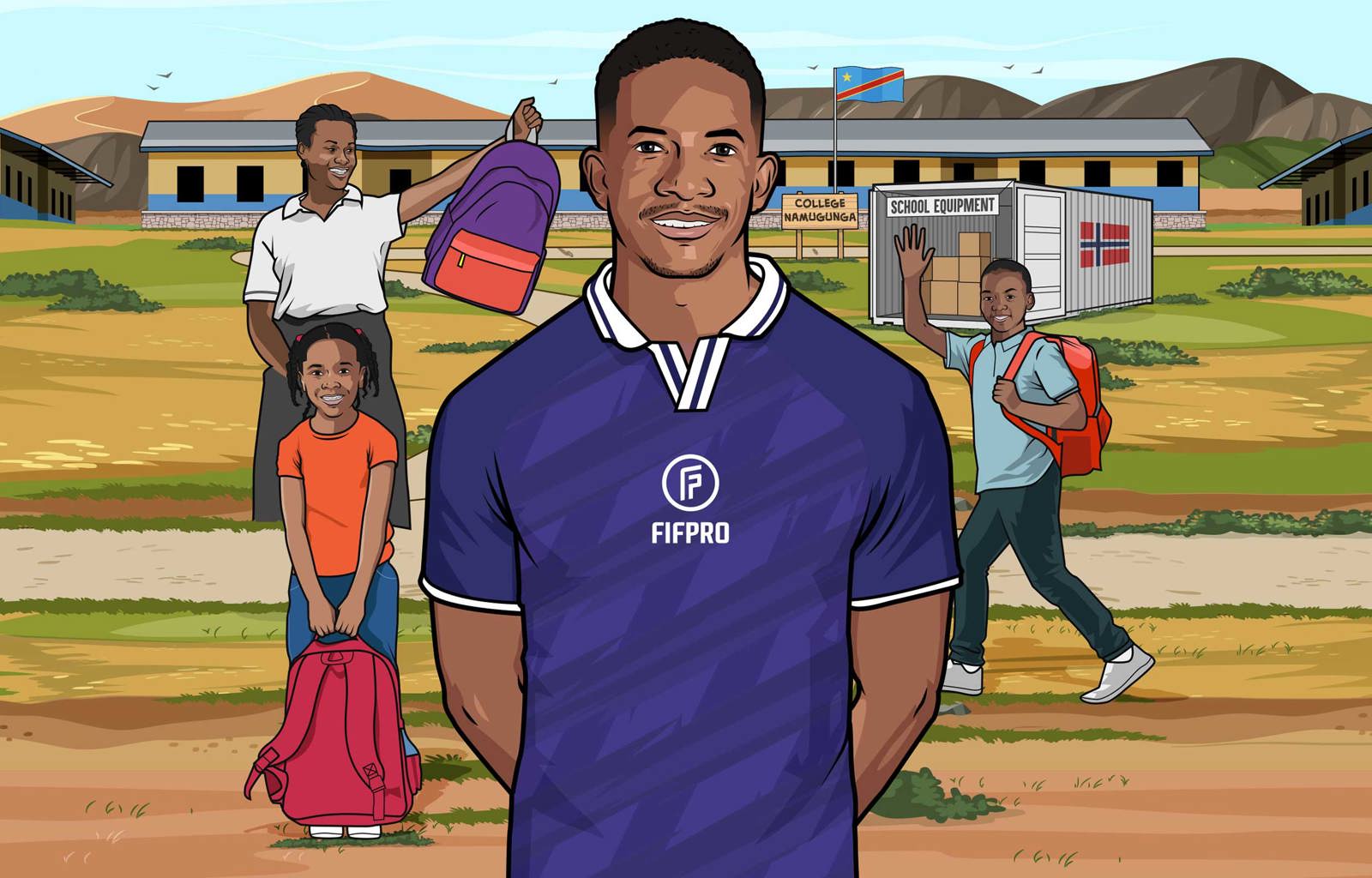
One-time Norway international Mushaga Bakenga plays for Stabæk. While the 31-year-old has lived most of his life in Norway, Bakenga’s parents were born in Democratic Republic of Congo, inspiring him to develop a school there for underprivileged children. His uncle, Dr. Denis Mukwege, was recognised for his work helping victims of sexual violence in war with the Nobel Peace Prize in 2018.
By Mushaga Bakenga
DR Congo is beautiful but, in some ways, it’s also one of the ugliest countries in the world. It is exceedingly rich in minerals, fuelling multimillion enterprise such as Tesla, iPhone and batteries, yet war and corruption forces most of the people there to live in poverty. They have never been given the opportunity to enjoy the fruit of our nation, and it creates a horrible sense of hopelessness.
I am a lucky person, blessed to live a life that I and so many others dream of, but my life could just have easily been a nightmare. That knowledge will always push me to help those less fortunate.
Life today is a far cry from when my family and I were blacklisted by terror groups during the Congo war and were running for our lives – living in schools, tents, empty buildings – whatever was available to us.
As scary as it was, though, I don’t look back on that time as hopeless. I was with my parents, aunties, uncles, and grandparents who all loved and protected us. We had access to food that although wasn’t always the most nutritious kept hunger at bay, and we would play football together even if the ball was a plastic bag bound together with a rope. I had a childhood.
Things could have been very different, though. What if we didn’t manage to get out? What if my parents didn’t survive? What if I had been left as the sole carer of my infant sister? That would have changed everything and I wouldn’t have been a footballer. Instead, I would have been confronted with the same reality that so many children growing up in DR Congo face.
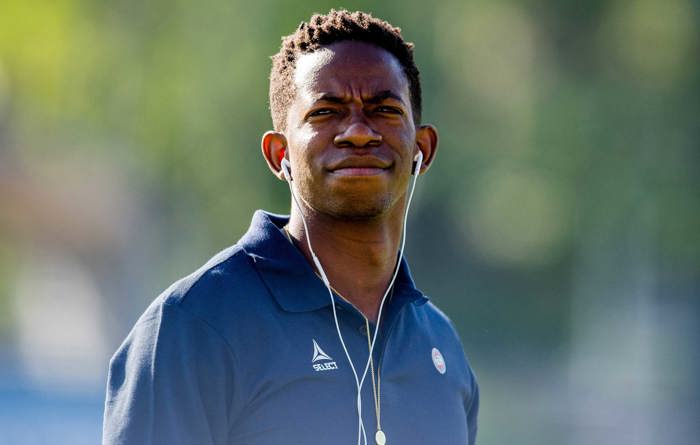
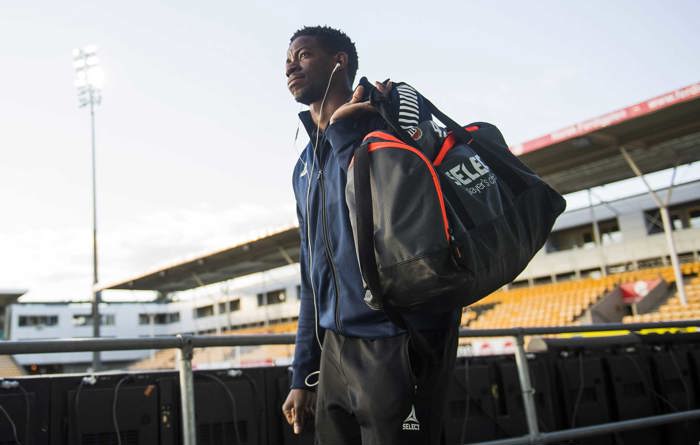
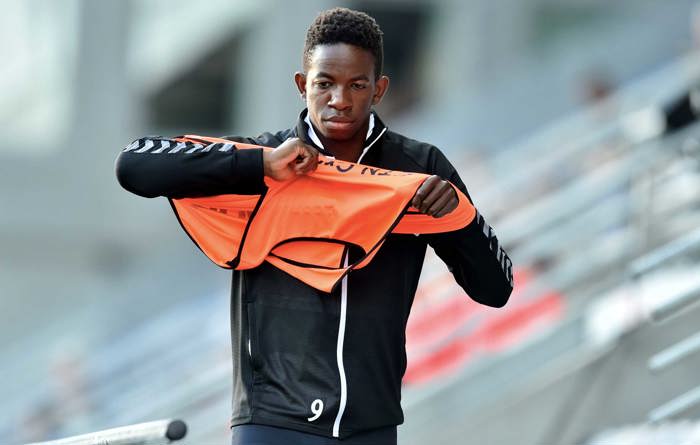
When I first approached my grandfather with advice on how to use my position as a footballer to make a difference, the initial idea was to build a football academy. I could see how much untapped talent was in the area, and how much joy the game could bring to children. However, it didn’t take long to become disillusioned with this prospect: so many people wanted a say in how it was run and we could see how vulnerable it was to corruption.
Together we concluded that education is key to a better start in life. We found a small village just outside where my family is from, that had been severely affected by war and poverty, where a lot of children had lost their parents and were struggling to survive. There were 11-year-olds with no family, no homes, no access to food, yet they were responsible for not only themselves but their younger siblings.
We decided to build a school for the orphanage that was there, to help give these children a fairer start in life – give them something to build on, instead of condemning them to the hand that they had been unfairly dealt and had no way to escape. This is how College Namugunga began.
Initially, we built classrooms, hired teachers and put the word out that a free education would be available to anyone who wanted it. When 300 children showed up, I realised that this was going to be a much bigger initiative than I had originally thought, and my bank balance alone wasn’t going to cover it. So, instead of limiting the pupils, we expanded with the demand, and founded an organisation called The Divided World that would help us fundraise and support the needs of the school.
The government in Norway have helped pay for the shipping containers that transport classroom equipment and furniture, which is huge for us as it means the fundraising costs can be utilised elsewhere. We’ve also managed to put pressure on the Congo government who have agreed to pay 50 percent of the teachers’ salaries – which again frees this budget up for investment elsewhere.
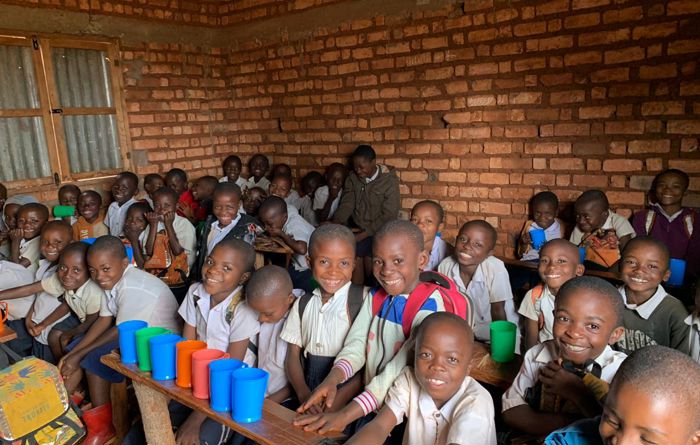
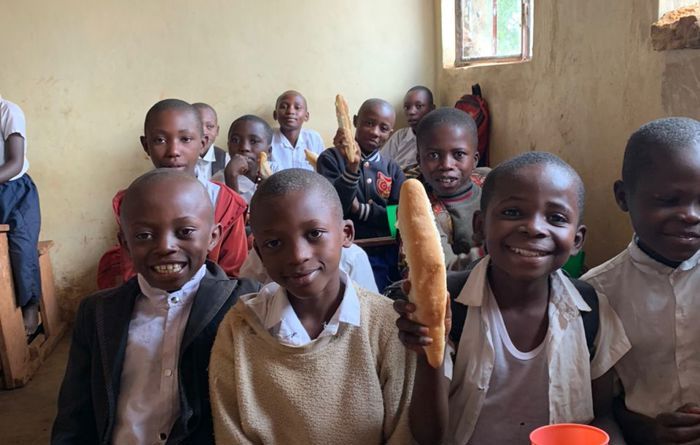
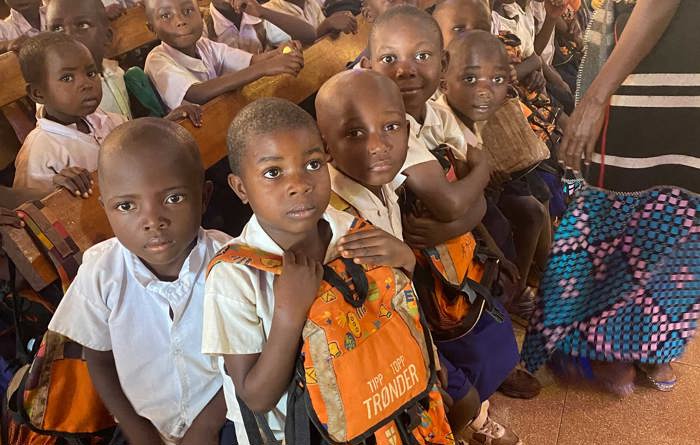
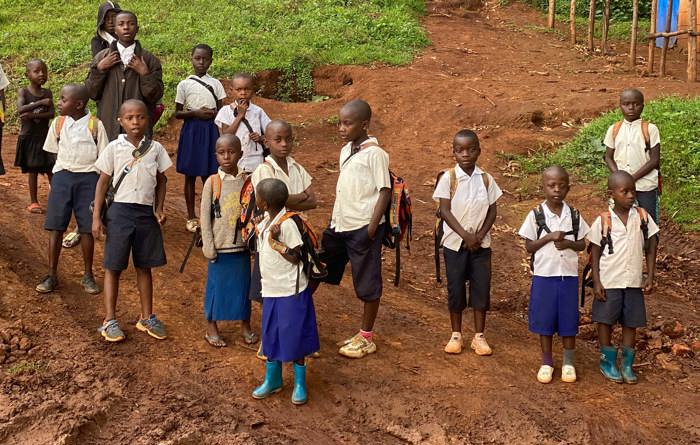
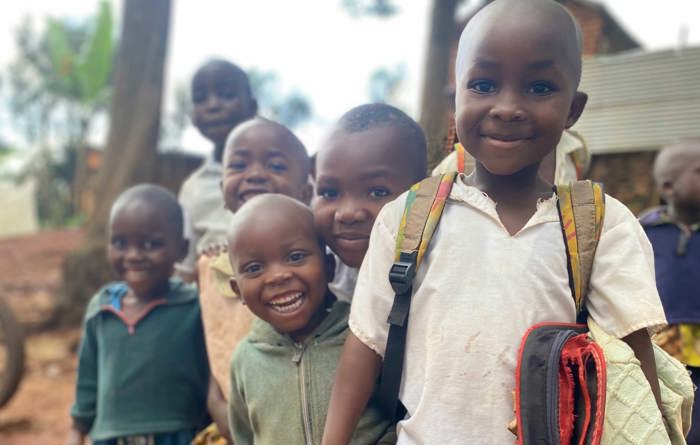
Today there are around 1,400 children in the school, and so far we’ve sent nearly 90 students onto university scholarships, an opportunity that they couldn’t even have dreamed of before. We’re working to establish programmes with higher education institutions and grants to secure more places for children in the future.
We’ve not only built more classrooms, but an entire ecosystem for the village to support itself. My mum bought some land where they’ve planted crops and even made a water source where they could farm fish, which has provided not only food, but work and income for some of the adults. Each time I visit it gets better – they even have a bakery now – and it’s uplifting to see the whole village flourish around the school.
The Coronavirus pandemic showed just how much people relied on the school. In the three months that it had to close, 35 young girls got married away. People needed money for their families that they either sold their daughters to a man they hoped could provide for her, or girls as young as 13 gave up on their dreams of an education to provide for the siblings. It made me even more determined to ensure that this school is a consistent factor in the lives of those who depend on it.
There is still a lot of work to be done and, of course, the project will require upkeep in the years to come. But it is slowly starting to support itself in lots of ways, which gives us the freedom to start looking towards the next project. We want to build another school, as well as a children’s home – giving even more kids the safety of a roof over their head, a bed to sleep in, and an education to give them the start in the world that they deserve.
The children take nothing for granted, and I want to give them as much of a head-start in life that I possibly can. Here in Norway, every kid that starts school gets a backpack from the state. However, after a year they don’t want it anymore, and most are still in good condition, so we started collecting them to give to the kids in DR Congo, who were previously using old plastic bags. They were so grateful that they had tears in their eyes; they’re all so proud of their new school backpacks. Such a seemingly small gesture on our end can mean so much to those that receive it.
Being a footballer gives you an incredible opportunity to give back. I am lucky in life, and this makes me much more aware of those that aren’t. If a child has only known poverty, that’s all that they can bring their children into, but if you give them hope of a better life, they themselves can pass this onto the generations that follow.
